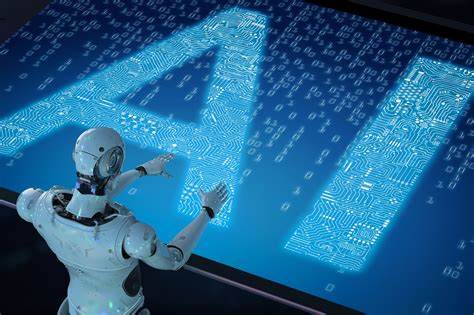In the ever-evolving landscape of technology, a new paradigm is emerging – remote AI jobs. As artificial intelligence continues to proliferate industries, it is breaking traditional boundaries by empowering individuals to work remotely and collaborate seamlessly from different corners of the world. The rise of train AI jobs remote offers a unique opportunity for businesses to tap into a global talent pool and harness the power of AI to drive innovation and efficiency.
Advantages of Remote AI Jobs
Contents
Remote AI jobs come with a plethora of advantages for both businesses and professionals. One of the primary benefits is the cost-effectiveness it brings to organizations. By hiring remote AI workers, businesses can eliminate the need for expensive infrastructure and office spaces. This not only saves a significant amount of money but also allows companies to invest those resources into other critical areas of their operations.
Additionally, train AI jobs remote offer organizations access to a diverse talent pool that spans across geographical boundaries. With the power of technology, businesses can now hire the best AI talent from anywhere in the world. This global talent acquisition enables companies to bring in fresh perspectives, ideas, and expertise, ultimately driving innovation within the organization.
For professionals, AI jobs remote no experience offer an exceptional level of flexibility and work-life balance. Working remotely eliminates the need for commuting, which not only saves time but also reduces stress and improves overall well-being. Professionals can choose their own working hours and create a schedule that suits their personal needs, leading to increased job satisfaction and productivity.
Remote AI Job Market Trends
The remote AI job market is experiencing a significant surge in demand as more and more companies recognize the benefits of harnessing AI talent remotely. According to recent studies, the number of remote AI job postings has grown exponentially in the past few years. This trend is expected to continue as AI becomes increasingly integrated into various industries.
Industries such as healthcare, finance, and e-commerce are actively seeking remote AI professionals to spearhead their AI initiatives. With the rise of telemedicine, AI-powered financial analytics, and personalized online shopping experiences, the need for remote AI experts has never been higher. As businesses embrace digital transformation and prioritize AI adoption, the demand for train AI jobs remote is expected to skyrocket.
Skills Required for Remote AI Jobs
Train AI jobs remote require a unique set of skills that go beyond technical expertise. While proficiency in machine learning algorithms, data analysis, and programming languages is crucial, remote AI workers also need to possess strong communication and collaboration skills. Since remote work relies heavily on virtual communication tools, AI professionals must be able to effectively convey their ideas, collaborate with team members, and provide updates on project progress.
In addition to technical and communication skills, remote AI workers must also be highly self-motivated and disciplined. Remote work often requires individuals to work independently and manage their own time effectively. This level of autonomy can be challenging for some, but those who excel in self-management will thrive in remote AI roles.
Finding Remote AI Job Opportunities
Finding remote AI job opportunities requires a strategic approach that combines traditional job search methods with leveraging online platforms. Start by searching for remote AI openings on popular job search websites, such as LinkedIn, Indeed, and Glassdoor. These platforms often have filters that allow you to specifically search for remote positions.
In addition to traditional job search websites, explore online communities and forums dedicated to AI professionals. These communities often share remote job opportunities, provide networking opportunities, and offer valuable insights into the remote AI job market. Engaging with these communities can help you stay updated on the latest trends and connect with like-minded professionals.
Finally, consider leveraging AI-specific platforms and websites that cater specifically to train AI jobs remote. These platforms connect businesses with AI professionals looking for remote work opportunities. By creating a profile and showcasing your skills, you increase your chances of being discovered by companies actively seeking remote AI talent.
Remote AI Job Interview Tips
Preparing for a remote AI job interview requires a slightly different approach compared to traditional in-person interviews. Here are some tips to help you succeed:
- Familiarize yourself with remote collaboration tools: Ensure you are comfortable using tools like video conferencing platforms, project management software, and virtual whiteboards. Familiarity with these tools demonstrates your ability to seamlessly collaborate remotely.
- Showcase your remote work experience: Highlight any previous experience you have working remotely or collaborating with remote teams. Employers value candidates who have proven track records in remote work, as it shows their ability to adapt to this unique work environment.
- Emphasize your communication skills: Clearly communicate your strong communication and collaboration skills. Remote work heavily relies on effective communication, so employers are likely to prioritize candidates who can articulate their ideas clearly and concisely.
- Demonstrate your problem-solving abilities: Remote work often presents unique challenges that require individuals to think critically and problem-solve independently. Showcase your ability to tackle complex problems and provide examples of how you have successfully overcome obstacles in a remote work setting.
Tools and Technologies for Remote AI Work
Remote AI work heavily relies on a range of tools and technologies that facilitate seamless collaboration and productivity. Here are some essential tools for remote AI professionals:
- Communication tools: Platforms like Slack, Microsoft Teams, and Zoom enable real-time communication, file sharing, and video conferencing, ensuring remote teams can stay connected and collaborate effectively.
- Project management software: Tools like Trello, Asana, and Jira help remote AI teams track project progress, assign tasks, and manage deadlines. These platforms provide transparency and facilitate efficient project management.
- Cloud computing platforms: Services such as Amazon Web Services (AWS), Google Cloud, and Microsoft Azure offer remote AI workers the ability to access computing resources and store large datasets securely in the cloud. This eliminates the need for physical infrastructure and enables remote teams to work on complex AI projects.
- Version control systems: Platforms like Git and GitHub allow remote AI professionals to collaborate on code, track changes, and manage different versions of their work. These tools are essential for efficient code sharing and collaboration.
The rise of train AI jobs remote is revolutionizing the way businesses operate and professionals work. The advantages of train AI jobs remote, such as cost-effectiveness, access to a global talent pool, and improved work-life balance, make it an attractive option for both organizations and individuals. As the remote AI job market continues to expand, professionals must equip themselves with the necessary skills and leverage the right tools to thrive in this evolving landscape. By embracing remote AI work, businesses can unlock the true potential of AI and drive innovation in their respective industries.






